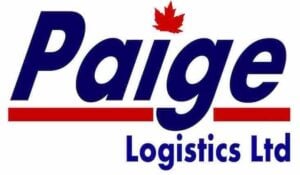Less-Than-Truckload
Shipping LTL Freight
Flexible, Customizable & Crazy Fast LTL Services
Less than truckload vs full truckload
LTL logistics services is what Paige Logistics is most known for. When you do not need exclusive use of a reefer, dry van trailer, or flat deck to ship your products. We provide time sensitive events and tradeshow exhibit logistics.
LTL vs FTL
Including distribution and expedited services, our (FTL) full truckload transportation services and less-than-truckload company handles all sorts of general freight including perishable food and commodities to satisfying all of your logistics needs.
Our distribution and sea freight forwarding carriers and rail freight shipping companies are customizable such as freight shipping from Canada to the USA and shipping China to Canada.
As your less that truckload trucking services partner, we aim for the best costs if it’s once a month, or once a week, we can guarantee the best rate for you to control your worldwide shipping and freight forwarding costs with dedicated transportation services.
In this article, we’ll learn about (LTL) less than truckload shipping, its advantages, and how to incorporate it into your supply chain effectively. Whether you’re an old hand at logistics or just starting out, you’re about to learn how LTL less than truckload shipping actual potential may transform your company.
Fasten your seatbelts, because you’re about to go on a ride that will revolutionize the way you think about shipping cargo with less than truckload shipping companies. Welcome to the exciting and alluring world of Less than truckload shipping, where speed, economy, and efficiency all meet head on.
Effectiveness and economy are of utmost importance in the modern corporate world. Finding creative solutions to optimize logistics and streamline operations is crucial for the success of any organization, whether run by an entrepreneur, a small business owner, or a supply chain management at a large corporation.
Unlike FTL full truck load, less than truckload shipping is one option that has gained a lot of traction in recent years. Businesses are finding that by utilizing (LTL) freight services, they may improve freight transit efficiency and save money.
Consider that your company needs to ship a moderate load, but that using an entire vehicle would be inefficient and costly. Here’s where less than truckload shipping comes in as the transportation industry’s superhero of cost savings.
By allowing many organizations’ shipments to be combined into a single truck, this can provide a highly adaptable and efficient option, reducing transportation costs and maximizing the use of available truck space. It’s the very definition of ingenuity in action.
Let’s delve into what makes less-than-truckload freight shipping so interesting. The first is the obvious appeal of effectiveness. Time is money, and LTL shipping allows businesses to save both by streamlining their logistics operations.
Less-than-truckload shipping helps businesses save time and money by streamlining their processes through consolidation of shipments, shorter transit times, and reduced handling.
The second consideration is the time constraint. The ever-changing nature of LTL shipping lends a sense of urgency to the situation.

LTL allows companies to take advantage of flexible less than truckload carrier, which speeds up delivery and reduces lead times. To stay ahead of the curve in a market where customers expect instantaneous delivery, LTL shipping is a must.
Finally, we must not overlook the cost savings that LTL shipping rates Canada provides. When firms pool their shipping costs, everyone benefits. Expenses are reduced, profits are increased, and resources are freed up for more important uses.
Companies now have an alternative to the inefficiencies and high prices of full truckload delivery thanks to LTL dry van freight shippin
What is LTL Shipping?
For e-commerce entrepreneurs and frequent shippers of LTL freight, mastering the nuances of LTL shipping can significantly transform your logistics strategy. Let’s simplify it!
Imagine LTL shipping as the carpooling option for your goods. Rather than reserving a whole truck for your shipment, you share the truck space with other shippers. It’s the ideal solution for shipments that are too large for standard parcel delivery but too small to justify the cost of an entire truck. Essentially, it occupies the sweet spot in the freight shipping spectrum.
What is the benefit?
Pay only for the space your shipment occupies. It’s akin to purchasing just a slice of pizza rather than the entire pie – maximizing savings and minimizing waste.
Versatility: LTL shipping offers a range of options. Whether you require additional services such as liftgate assistance or inside delivery, LTL carriers are equipped to accommodate your needs.
Environmental Sustainability: By reducing the number of trucks needed on the road, LTL shipping contributes to a healthier environment. It represents a meaningful step towards a more sustainable future.
Perfect for Small and Medium-Sized Businesses: LTL shipping is designed with the dynamic shipping requirements of small and medium enterprises in mind, making it an ideal logistics solution.
How LTL Pricing Works: The Inside Scoop
LTL shipping rates can be a bit of a puzzle, but let’s simplify it:
Distance: The further your shipment travels, the more you pay. Simple, right?
Weight and Size: Heavier and larger shipments cost more. It’s all about how much space your freight hogs in the truck.
Freight Class: This is where it gets tricky. Freight class is based on density, stowability, handling, and liability. The higher the class, the higher the rate.
Extra Services: Need some special handling or a faster delivery? That’ll cost extra.
Prepping Your LTL Shipment: A Step-by-Step Guide
Pack it Right: Protect your goods with proper packaging. Pallets are your best friends here.
Label Clearly: Every piece of your shipment should have a label with all the essential info.
Accurate Documentation: The Bill of Lading (BOL) is your golden ticket. Fill it out correctly to avoid any hiccups.
Measure Twice: Double-check those dimensions and weights. Accuracy is key to avoid extra charges.
Choosing the Perfect LTL Carrier
Not all carriers are created equal. Here’s how to pick a winner:
1. Reputation Matters: Look for carriers known for reliability and excellent service.
2. Service Area: Make sure they go where you need them to.
3. Special Needs: Got any specific requirements? Check if the carrier can handle them.
4. Compare Rates: Don’t just jump at the lowest price. Balance cost with quality
Imagine the ability to share transportation expenses, cater to smaller freight loads, and conquer the challenges faced by businesses of all sizes.
Less than truckload shipping carriers are the unsung heroes of the logistics world, armed with specialized equipment and unrivaled expertise.
They effortlessly handle multiple shipments from various customers, strategically loading them onto a single truck. This consolidation not only slashes shipping expenses but also provides you with the flexibility and agility needed to thrive in today’s fast-paced market.
When should you harness the power of LTL?
Picture a scenario where your shipment falls between the weight range of 150 and 15,000 pounds, making it too large for traditional parcel carriers but not substantial enough to warrant a full truckload. In these situations, LTL price becomes your go-to solution, offering unbeatable advantages.
Small to medium-sized businesses can now tap into the potential of less than truckload shipping, pooling resources with other shippers to create cost-effective solutions.
Say goodbye to paying for unused truck space, as less than truckload shipping allows you to pay only for the space your cargo occupies. Plus, if your business requires multiple destinations, LTL ensures efficient consolidation and reduces transportation costs.
Limited storage space? Not a problem.
Less than a truckload enables you to ship smaller quantities without the need for excessive storage capacity. Additionally, our carriers possess the specialized equipment necessary to handle delicate or unique freight, ensuring the safe and secure transport of your goods.
With Paige Logistics managing your freight, you gain access to an array of benefits. This cost-effective option allows you to optimize your e-commerce operations, meeting customer expectations with faster delivery times.
Enhanced security measures for palletized shipments guarantee peace of mind. Take advantage of additional service options like Conestoga trucking, power liftgates and customizable features, tailored to your specific needs. Plus, track your shipments in real-time through comprehensive online tracking systems offered by most LTL carriers.
Unlock the true potential of sending smaller loads of freight and transform your shipping strategy. It’s time to revolutionize your logistics, maximize cost savings, and elevate your business to new heights.
For firms that don’t need to carry a full 53-foot trailer, less-than-truckload (LTL) transportation is a cost-effective choice. If you don’t typically require all of the space that a full truckload trailer provides, it can be costly to ship.
On the other side, when delivering large quantities, using less than truckload can help you save money. However, there are many details to think about while LTL shipping.
The shipping method may vary depending on where the package is coming from and going to, so keep that in mind. Packaging materials, such as pallets, crates, or boxes, and tarping a flatbed can also have an impact on transit times.
As well as the length, breadth, and height of the freight, the total weight of the shipment, including the packaging and the item(s) being sent, is essential. Our website has further details regarding available packaging alternatives if you have any questions.
Final Thoughts
LTL shipping transcends the mere transportation of goods from Point A to Point B. It embodies the strategic decision-making that leads to significant savings, efficiency, and convenience. Grasping the nuances of LTL equips you with the knowledge to navigate the freight world more effectively, where informed decisions translate into power.
For those new to this aspect of logistics, diving into LTL shipping might appear daunting. The cost and specifics of a shipment are influenced by a myriad of factors, including the chosen routes, the weight and dimensions of the product, its packaging, and its freight classification.
Since its inception in 2013, Paige Logistics has emerged as a frontrunner in the logistics sector, owing to our unwavering commitment to customer satisfaction, our embrace of technological advancements for tracking Less Than Truckload (LTL) shipments, and our pursuit of operational excellence.
At Paige Logistics, you’re guaranteed prompt, personalized, and dedicated service. Our transport managers are committed to understanding your business and shipping needs thoroughly, ensuring cost and time efficiencies are maximized.
As a third-party logistics provider, we don’t own any trucks or warehouses. Instead, we’ve forged strong partnerships with premier trucking companies nationwide to deliver an extensive LTL shipping service at highly competitive rates.
Leverage our user-friendly platform and gain access to exclusive discounts for swift and efficient LTL freight shipments. Trust Paige Logistics for a shipping experience that prioritizes your needs and delivers on its promises.
Air, rail carriers and freight forwarders and one of North America’s favourite trucking company, we specialize in shipping. Spanning from the Maritimes, across QC to ON, MB, SK, AB, BC Full Truckload Services too!
With China Canada shipping or California to Alaska servicing all across USA, we strive to provide you the best transport shipping rates in Canada for Domestic and Cross Border Trucking, Shipping to California , cargo, freight and logistics services from a single pallet less-than-truckload to a full trailer load!
Great less than truckload shipping LTL Prices
The nations best rates for all trailer types : Dry Vans, Temperature Controlled Reefers, Flat Beds, Conestogas, Roll-Tites, Quad Axles and Maxis, Super B Flats,Step Decks – (Available with Ramps & Bunks), Full Truckload, Dedicated Full Containers (FCL), Drayage Services, Moving Services, Intermodal and Rail – Single Pallet (LCL), Low Boys/Double Drops/RGNs - Tandem/Tridem/Multi Axle, Power Liftgates, Hot Shots and Equipment Trailers.
100% Timely and Safety of Delivery
The absolute priority of Paige Logistics has on-time collection and delivery for your events exhibits and safety, and our freight rates are affordable. Our top goal and commitment is to execute HSE&Q best practices and procedures.
So, there you have it – your very own guide to mastering LTL shipping. Use this knowledge wisely, and watch your business thrive. Until next time, keep optimizing!
Our highly-trained workforce is well-versed in all facets of quality control associated with less-than-truckload LTL transport services, ensuring the safe dispatch of all types of freight and cargo.Dedicated transport services Ltd.
FAQ
Understanding LTL Shipping
What is LTL Canada?
LTL (less-than-truckload) and FTL (full truckload) cargo to and from the majority of Canadian locations. Select the service that meets your requirements the most effectively, regardless of whether time-saving or cost-effectiveness is more important to you.
For expedited shipping, choose expedited freight; for less essential shipments, choose standard freight.
What is LTL Shipping?
What is less than truckload shipping? Shipments that do not fill an entire truck can benefit from the low prices of less than truckload shipping. Consolidating several customers’ freight trucking onto a single vehicle is how less than truckload carriers works to save money for everyone involved in the shipping process.
Less than truckload example usually weighing between 150 and 15,000 pounds. LTL packages are too big for parcel services like UPS or FedEx but not big enough to warrant a full truckload.
Pallet jacks, liftgates, and forklifts are just some of the specialized pieces of machinery used by LTL trucks to load and unload these packages.
Pickup and delivery, tracking and insurance are just a few of the many services offered by LTL freight carriers, with pricing being determined by the shipment’s weight, dimensions, density, distance travelled, and any other services requested.
If you want a precise quote to determine less than truckload shipping cost and for your shipment to reach on time and undamaged, you need precise measurements and weight information.
It is a practical and affordable option for transporting smaller products. Using LTL, you may have your product delivered safely and on time while splitting the cost of transportation with other customers and making use of specialist equipment and services.
What is needed to ship LTL to Canada?
What Does Less-than-truckload and LTL Freight mean?
“Less-Than-Truckload” is an acronym commonly used in the shipping world and is an option for transporting cargo loads that are too small to fill an entire truck.
By transporting many, smaller shipments for different customers on the same vehicle, less than truckload shipping carriers are able to keep prices down for everyone.
Smaller than full truckload shipments but still too heavy for parcel services like UPS or FedEx, LTL company freight typically ranges in weight from 150 pounds to 15 thousand pounds.
Rates for less than truckload shipping or LTL transport are normally calculated according to the shipment’s mass, volume, density, and the travelled distance plus any additional services requested.
Who pays for LTL shipping?
LTL shipping involves shippers paying for only the portion of a truck that their products occupy; shippers are responsible for paying for shipments from other companies.
How does LTL work?
When transporting cargo via LTL, only a portion of a trailer is utilized for the voyage. The rented vehicle portion is loaded with the cargo and transported in conjunction with individual loads. Separate cargoes are collected and returned either prior to or subsequent to the designated pickup time.
What is the cheapest LTL freight class?
As per the National Motor Freight Classification (NMFC), shipments are categorized into eighteen distinct freight classes. The greater the shipping class, the greater the shipping cost.Class 500 freight is the priciest and most costly, whereas class 50 freight is the most affordable and least expensive.
Is LTL shipping cheaper?
The primary distinction between LTL and FTL is that LTL offers greater cost reductions when only a few pallets are shipped at once. This is more cost-effective for you as you are solely liable for the space you utilize, as opposed to purchasing an entire vehicle that remains unfilled.
The foundation of LTL is cost savings. When transporting only a few pallets, LTL is typically more cost-effective than renting an entire vehicle. In order to substantiate their cost-effective pricing strategies, LTL carriers must consistently uphold maximum efficiency.
How much is LTL shipping?
Shipping LTL freight can be inexpensive, ranging from $150 to $5,000 or more, contingent on a variety of factors such as the dimensions of the freight, its destination, the type of LTL services you require, and the cost of transportation.

Author & Chief Executive Officer at Paige Logistics Ltd. → Experienced Operations Manager with a demonstrated history of working in the Transportation, Trucking and the Railroad Industry.







